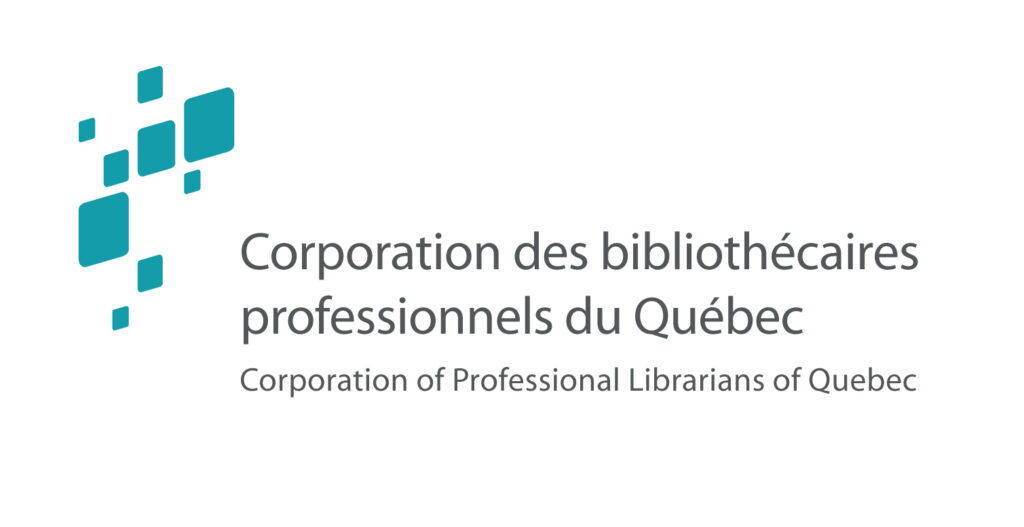English version below
Congrès de l’IFLA à Dubaï : comment défendre les valeurs fondamentales des bibliothèques ?
Le conseil d’administration de l’IFLA vient d’annoncer sa décision d’organiser le congrès 2024 de la Fédération à Dubaï aux Émirats arabes unis (EAU). En tant que membres de l’IFLA et organisations engagées en faveur des droits humains et du développement durable, nous nous interrogeons sur ce choix et sur le message qu’il véhicule.
Pour nous, les bibliothèques doivent être des lieux exemplaires en matière d’inclusion, de transparence démocratique, de liberté d’expression, de respect des droits humains et des droits culturels. Elles répondent à l’exigence humaine et démocratique de l’accès aux savoirs et à la culture pour toutes et tous et participent de l’émancipation des individus comme des populations exclues, elles sont des lieux de liberté et de rencontre avec les autres comme avec soi-même. Ce sont ces mêmes valeurs que prône l’IFLA lorsqu’elle souligne, comme faisant partie de ses valeurs fondamentales, que l’association s’engage à « promouvoir et valoriser la diversité et l’inclusion, notamment en ce qui concerne l’âge, la citoyenneté, le handicap, l’origine ethnique, l’identité de genre, la situation géographique, la langue, la philosophie politique, la race, les croyances religieuses, le sexe, l’orientation sexuelle ou le statut socio-économique », « l’adhésion aux principes de la liberté d’information » ou lorsqu’elle souhaite montrer la « contribution des bibliothèques dans la réalisation des objectifs de développement durable dans toutes ses dimensions » (Stratégie de l’IFLA 2019-2024). En choisissant Dubaï comme ville hôte de son congrès annuel, l’IFLA semble remettre en question ces engagements et cautionner des pratiques en contradiction avec ses propres principes.
Alors que l’IFLA défend depuis plusieurs années le rôle des bibliothèques dans la réalisation des Objectifs du Développement Durable (ODD/SDG), le modèle de développement et le système politique de Dubaï semblent sur plusieurs aspects en contradictions avec ces objectifs. Fondé sur un hyper consumérisme et un développement immobilier très important et spectaculaire, le modèle économique des Émirats arabes unis contredit totalement les objectifs de sobriété et de durabilité portés par le GIEC. Les conditions de travail des ouvriers, du bâtiment notamment, sont notoirement problématiques et mauvaises. Les « Dubaï Papers » ont par ailleurs montré à quel point la ville abritait une forte criminalité financière.
En outre, comme le rappelle Amnesty International dans son dernier rapport annuel la situation des droits humains est extrêmement critique aux EAU : atteintes répétées à la liberté d’expression, détentions arbitraires, pratique de la torture et des mauvais traitements. Le CFIBD est particulièrement préoccupé par le respect des droits des femmes et des personnes LGBTQI+.
Nos organisations sont attachées à l’ouverture et au dialogue avec toutes les autres organisations membres de l’IFLA, y compris celles issues d’Etats ne respectant pas les valeurs et les engagements de la Fédération, et affirment que tous les pays et toutes les cultures peuvent enrichir avec intérêt le dialogue professionnel au niveau international. À ce titre, nous soutenons toutes les initiatives visant à rendre le congrès annuel accessible à plus de collègues et à des profils culturels plus diversifiés. Il demeure cependant essentiel que ces échanges puissent se tenir dans de bonnes conditions et notamment le respect de la sécurité des minorités, de la liberté d’expression et de la liberté de conscience. L’élargissement du dialogue ne doit pas se faire au prix de son appauvrissement.
Comment le Conseil d’administration de l’IFLA entend-il conduire la défense des valeurs de l’association auprès des instances gouvernementales des EAU ? Quelles assurances peut-il donner par rapport à ce congrès ? Les communautés qui font partie de l’association et en constituent les différentes unités (Ensulib, LGBTQ+ Users, Relindial, WILSIG…) pourront-elles effectivement aborder les sujets qui les constituent comme les droits des femmes et des personnes LGBTQI+ au cours du congrès ?
Nos organisations demandent donc au Conseil d’administration de l’IFLA de revenir sur sa décision tant que des garanties ne sont pas apportées :
- en matière de liberté des débats et des questions abordées durant le congrès
- en matière de sécurité des personnes participant au congrès
- en matière de cohérence avec les objectifs de développement durable que l’IFLA prétend soutenir
Déclaration signée par sept associations professionnelles et institutions :
- ADGBV – Association des directeurs de bibliothèques de grandes villes (France)
- ADBS – Association des professionnels de l’information et de la documentation (France)
- APDEN – Association des professeurs documentalistes de l’Éducation nationale (France)
- BPI – Bibliothèque publique d’information (France)
- CBPQ – Corporation des bibliothécaires professionnels du Québec (Canada)
- CFIBD – Comité français international bibliothèques et documentation (France)
- FMD – Fédération des milieux documentaires (Canada)
 |
 |
 |
 |
 |
 |
 |
IFLA Conference in Dubai: how to defend the core values of libraries?
The IFLA Governing Board has just announced its decision to hold the WLIC 2024 in Dubai in the United Arab Emirates (UAE). As a members of IFLA and an organizations committed to human rights and sustainable development, we question this choice and the message it conveys.
We strongly believes that libraries should be exemplary places in terms of inclusion, democratic transparency, freedom of expression, respect for human rights and cultural rights. Libraries respond to the human and democratic needs of access to knowledge and culture for all, and they participate in the emancipation of individuals and excluded communities. They are places of freedom and encounter with others as well as oneself. These are the goals that IFLA advocates when it stresses, as part of its core values, that the association is committed to « promoting and valuing diversity and inclusion, particularly with regard to age, citizenship, disability, ethnicity, gender identity, geographic location, language, political philosophy, race, religious beliefs, gender, sexual orientation, or socioeconomic status”. IFLA claims also its “adherence to the principles of freedom of information” or its commitment to show the “contribution of libraries in achieving the Sustainable Development Goals in all its dimensions” (IFLA Strategy 2019-2024). By choosing Dubai as the host city for its annual conference, IFLA seems to be questioning these commitments and endorsing practices that contradict its own principles.
While IFLA has been advocating for several years the role of libraries in achieving the Sustainable Development Goals (SDGs), the development model and the political system of Dubai obviously contradict these goals. Based on hyper-consumerism and very significant and spectacular real estate development, the economic model of the United Arab Emirates totally challenges the objectives of sobriety and sustainability promoted by the IPCC. Working conditions for workers, especially in construction, are notoriously problematic and poor. The « Dubai Papers » have also shown the extent to which the city is home to strong financial crime.
In addition, as Amnesty International reminds us in its latest annual report the human rights situation is extremely critical in the UAE: repeated attacks on the freedom of expression, arbitrary detentions, practice of torture and ill-treatment. The CFIBD is particularly concerned about respecting the rights of women and LGBTQI+ people.
Our organizations are committed to openness and dialogue with all other member organizations of IFLA, including those from States that do not respect the values and commitments of the Federation, and they affirm that all countries and all cultures can interestingly enrich professional dialogue at the international level. As such, we support all initiatives aimed at making the annual congress accessible to more colleagues with more diverse cultural profiles. However, it remains essential that these exchanges can take place in good conditions and in particular respect for the safety of minorities, freedom of expression and freedom of conscience. Expanding dialogue should not come at the cost of an impoverishment of it.
How does the IFLA GB intend to lead the defense of the association’s values with the government bodies of the UAE? What assurances can it give regarding this congress? Will the groups that are part of the association and make up the different units (Ensulib, LGBTQ+ Users, Relindial, WILSIG, etc.) actually be able to address the subjects that constitute them, such as the rights of women and LGBTQI+ people during the congress?
Our organizations therefore ask the IFLA Board of Directors to reconsider its decision until guarantees are provided concerning:
- the freedom of expression about all topics usually addressed during WLIC
- the safety of all participants no matter the identities they express
- the consistency with the Sustainable Development Goals that IFLA claims to support
Statement signed by 7 professional associations and institutions:
- ADGBV – Association des directeurs de bibliothèques de grandes villes (France)
- ADBS – Association des professionnels de l’information et de la documentation (France)
- APDEN – Association des professeurs documentalistes de l’Éducation nationale (France)
- BPI – Bibliothèque publique d’information (France)
- CBPQ – Corporation des bibliothécaires professionnels du Québec (Canada)
- CFIBD – Comité français international bibliothèques et documentation (France)
- FMD – Fédération des milieux documentaires (Canada)
 |
 |
 |
 |
 |
 |
 |


Bullseye!!!
Bonjour,
C’est en tant que chercheur indépendant, professeur agrégé de lettres classiques, docteur ès-lettres que je joins ma voix à celles des opposants à la tenue d’un congrès de bibliothécaires dans les Emirats Arabes Unis. Je prends volontiers à mon compte tous les griefs formulés contre cette décision, particulièrement touché en tant que gay par tout ce qui concerne les droits LGBT. Il y a une tendance dangereuse, d’une manière très globale, même dans des mays démocratiques, à vouloir censurer des ouvrages littéraires ou des œuvres d’art. Il n’est pas tolérable de les minimiser : les valeurs que nous portons ne sont pas négociables au nom d’un quelconque bénéfice.
Cordialement,